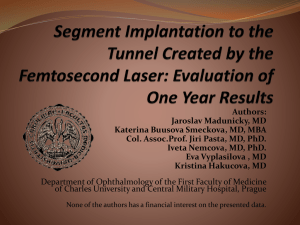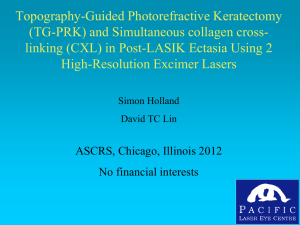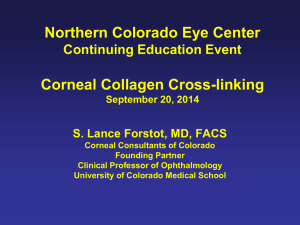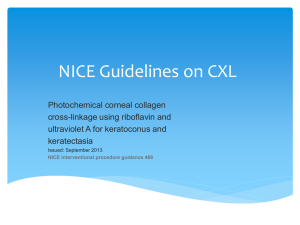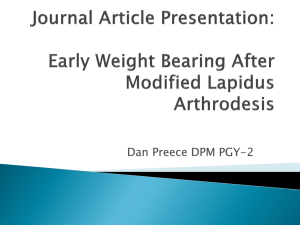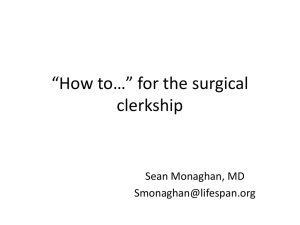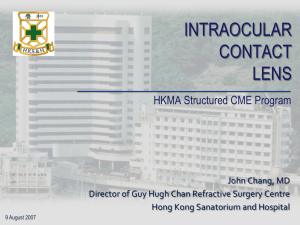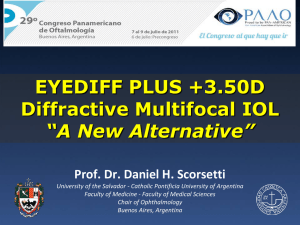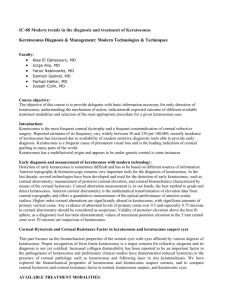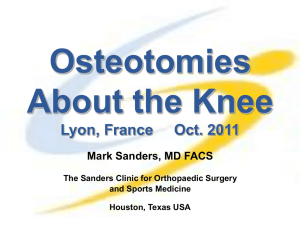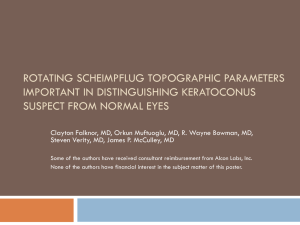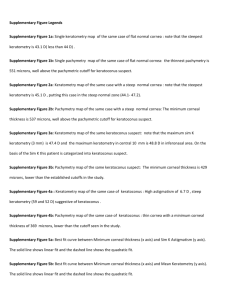for Keratoconus (KC) With Simultaneous Collagen Cross
advertisement
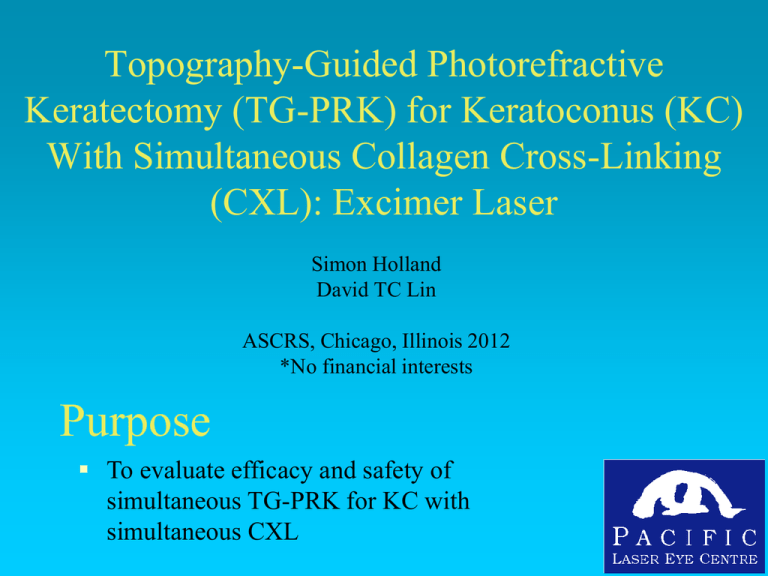
Topography-Guided Photorefractive Keratectomy (TG-PRK) for Keratoconus (KC) With Simultaneous Collagen Cross-Linking (CXL): Excimer Laser Simon Holland David TC Lin ASCRS, Chicago, Illinois 2012 *No financial interests Purpose To evaluate efficacy and safety of simultaneous TG-PRK for KC with simultaneous CXL Methods 127 keratoconus eyes underwent treatment with Allegretto excimer laser Treatment targeted at -1.25 post-op, with minimal residual stromal depth 300microns Epithelial removal by trans-epithelial laser Topography-guided PRK, T-CAT software, modified by TNT (topographical neutralization) Riboflavin 0.1% in dextran, until aqueous staining UV irradiation with riboflavin (up to 20 minutes) UV 370 um, 3mW/cm2 - 5.4 J/m2 Hypotonic dextran if <400 um Bandage contact lens, standard post PRK management TG-PRK CXL for KERATOCONUS Pre-op: +1.75-4.00x060 BSCVA: 20/30- 6 months post-op UCVA: 20/30 RX: +0.25-0.75x170 20/25 TG-PRK CXL for KERATOCONUS Pre-operative 6 months post-op UCVA 20/60 UCVA: 20/40+ MR: +2.25-2.00X120 20/40- MR: -0.50-0.50X60 20/30- TG CXL PRK for KERATOCONUS Pre-op: -2.75-2.25x010 12 months post-op BSCVA: 20/20UCVA: 20/30RX: +0.50-0.50x020 20/30- Results 99 eyes completed 6 months follow-up 53 (54%) had ≥20/40 or better uncorrected visual acuity (UVA) 92 (93%) had ≥20/40 or better best corrected visual acuity (BCVA) 51 (52%) had BCVA improved, 32 (32%) improved BCVA 2 lines or more, 33 (33%) no change, 4 (4%) lost 2 lines or more Mean astigmatism decreased -2.77D pre-op to -1.14D 4 had delay in epithelial healing with subsequent haze, 2 developed haze sufficient to reduce BCVA more than 2 lines, 1 had herpetic keratitis – 3 recovered pre-operative BCVA. Glare, halos, and difficulties with night driving decreased from 3.5 to 2.0 on a 4 point score (n=25) Conclusions Simultaneous TG-PRK with CXL using customized TNT technique shows promise to improve both UCVA and BCVA in keratoconus patients with reasonable efficacy and safety Longer term results are needed to establish value and safety of combining attempted refractive correction and topographical regularization with collagen cross linking
